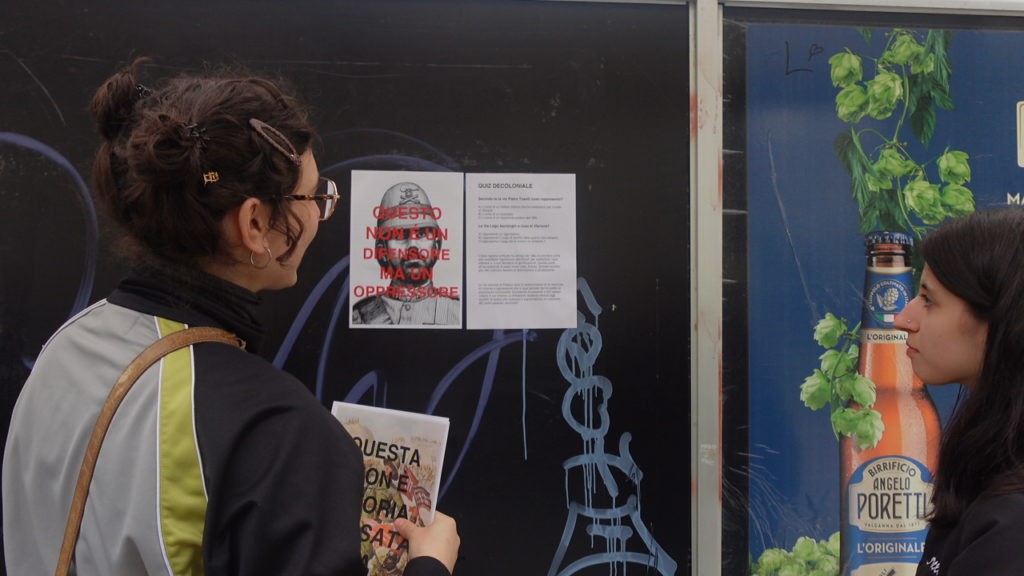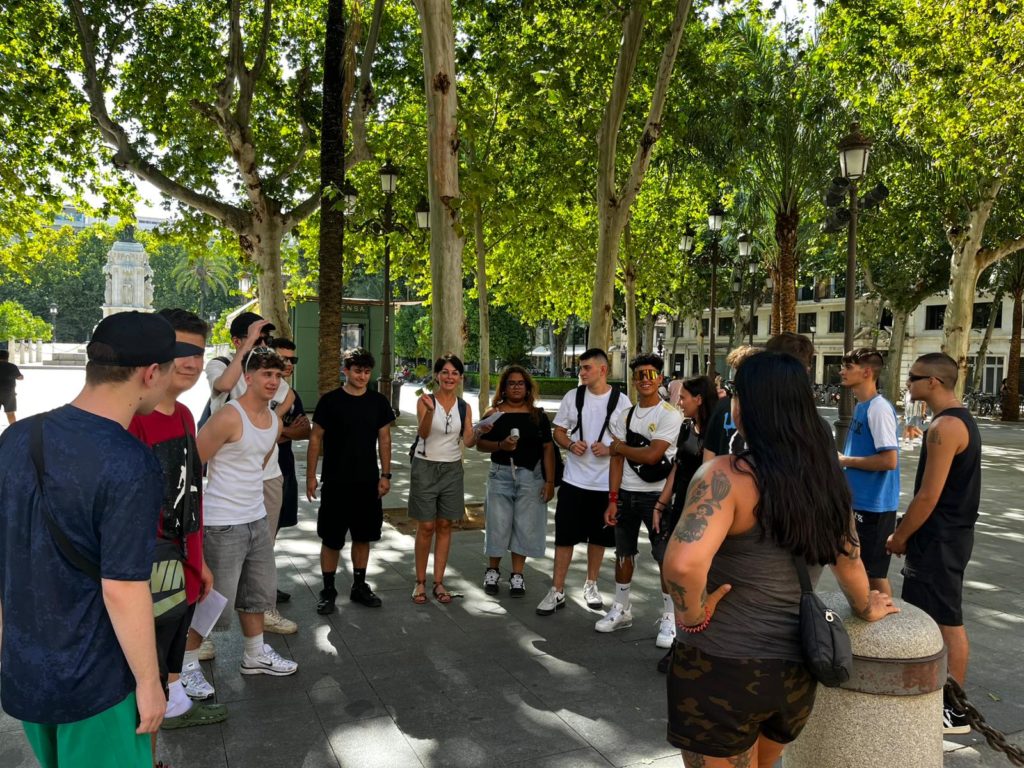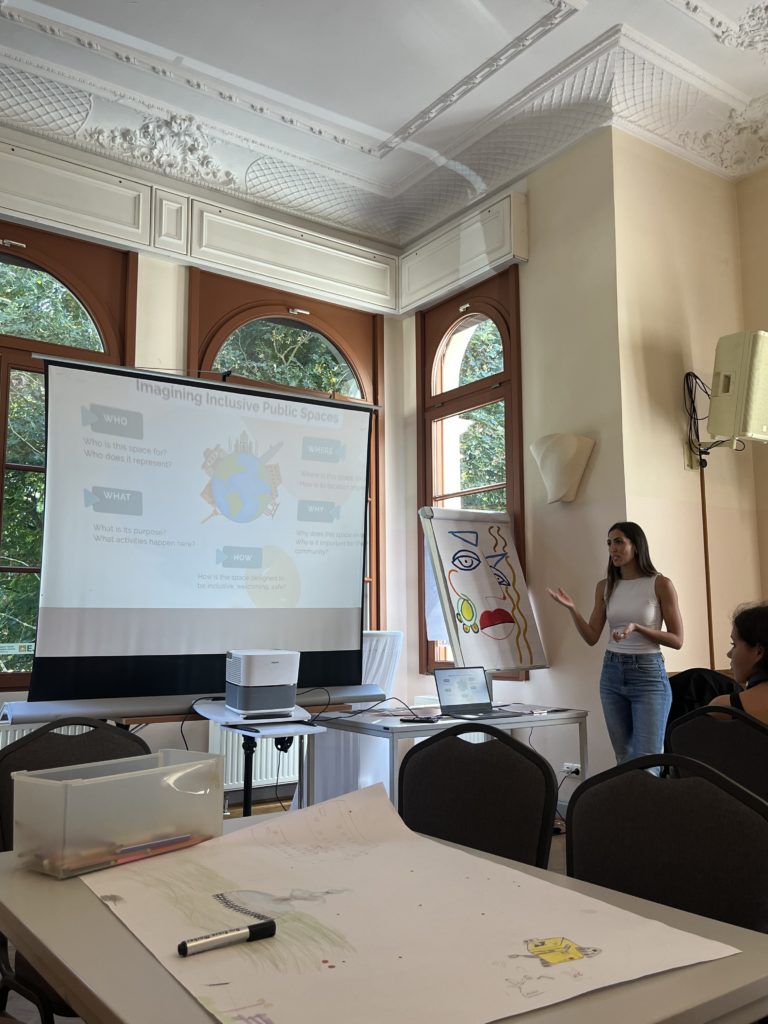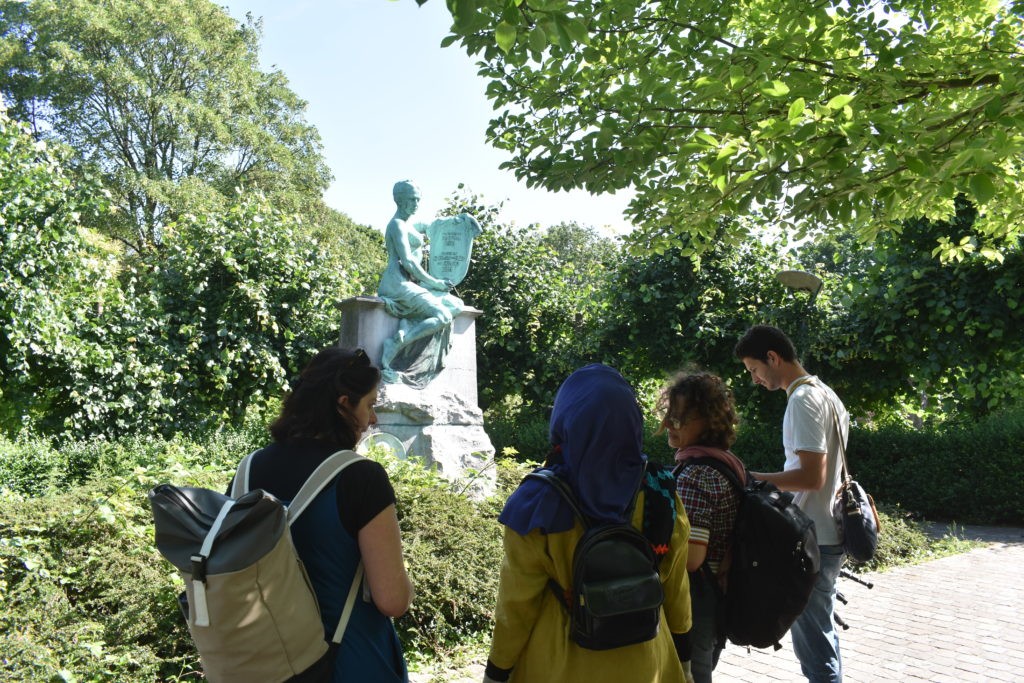UDEW: Twenty Workshops Across Europe to Rethink Colonial Memory
The European project UDEW – Urban Decolonisation Walks in the EU, co-funded by the European Commission under the Citizens, Equality, Rights and Values (CERV) programme, has recently completed its national workshops. The numbers speak of a remarkable achievement: twenty workshops organised in four countries – Italy, Spain, Germany and Belgium – and the active involvement of more than two hundred participants from a wide range of backgrounds, including students, educators, cultural operators, activists, local communities and citizens interested in exploring Europe’s complex relationship with its colonial past.
At the core of UDEW is the conviction that the traces of colonialism are still embedded in the everyday landscapes of our cities. From monuments and street names to museums and urban architecture, many spaces continue to echo narratives that have long gone unquestioned. These legacies, often invisible to the majority, shape public memory in ways that risk excluding alternative perspectives and silencing the experiences of marginalised communities. The project therefore aims to “decolonise” the way Europeans look at their own cities, encouraging people to critically examine what they see and to imagine how different, more inclusive stories could be told.
In Padua, Italy, GEA organised a rich cycle of workshops that combined urban walks, university lectures and participatory discussions to shed light on Italy’s colonial legacy and its contemporary echoes. Participants were guided through neighbourhoods marked by colonial street names, fascist inscriptions and monuments to campaigns in Africa, using these familiar spaces as starting points for critical reflection on how history is remembered, narrated or silenced in the public sphere. Alongside these walks, university students co-designed thematic routes and activities, while other sessions addressed current issues such as anti-Slavic racism, the racialisation of work and intersectionality, often enriched by testimonies from activists and migrant communities. What emerged was a strong balance between educational rigour and grassroots participation: by bridging academic debate and civic engagement, the Italian workshops not only raised awareness of colonial traces in Padua but also connected them to present-day forms of discrimination and resistance, demonstrating how decolonial education can serve as a practical tool for schools, community organisations and local institutions in reimagining more inclusive urban narratives. In total, GEA involved a total of 68 participants across seven workshops held between March and April 2025, combining academic settings with outdoor activities and community collaborations.

In Seville, Spain, activities were carried out by INClusion in highly symbolic locations such as the Torre del Oro, the Archivo de Indias, and the central squares and streets historically tied to Spain’s colonial past. Participants, largely young people from diverse backgrounds, were invited to critically examine plaques, monuments, and place names that continue to project imperial narratives into the present. Through guided walks, collective analysis, and creative interventions, they developed counter-narratives by renaming streets, reinterpreting monuments, and imagining alternative memorials for silenced histories. This combination of critical reflection and artistic expression made complex historical issues accessible and also empowered participants to see themselves as active agents of change. The Seville experience highlighted how urban space can be re-read through an anticolonial and antiracist lens, offering citizens tools to question dominant narratives and to imagine more inclusive ways of remembering in contemporary Europe. INClusion reached a total of 52 participants across four workshops conducted between March and June 2025, engaging local youth, students and educators in a collaborative re-reading of Seville’s colonial heritage.

In Dresden, Germany, JKPEV placed the focus on how traces of the colonial imagination are still embedded in the city’s visual and architectural fabric. The workshops combined guided urban walks, historical analysis and creative reflection to encourage participants to look beyond the surface of familiar spaces and question how collective memory is constructed. Starting from central locations marked by monuments, street names and institutional buildings, the groups explored the links between local history and Germany’s colonial past—connections that often remain marginal in mainstream public discourse. Each session fostered critical dialogue on how representations of “the other” have been perpetuated in art, education and the urban landscape, and on the ongoing impact of these narratives in shaping perceptions of identity and belonging. The discussions also delved into the role of cultural institutions, asking what responsibilities museums, municipalities and schools bear in acknowledging this legacy and promoting more inclusive approaches to memory. The experience demonstrated that confronting colonial traces is not only a question of the past, but also of how European cities choose to imagine themselves today and in the future. JKPeV’s summer workshops in 2025 gathered 62 participants from across Dresden, showcasing how creativity and community engagement can foster decolonial reflection and shared remembrance.

In Brussels, Belgium, S-COM developed a four-part programme that combined artistic expression, site-specific activities and collective debate to explore how colonial legacies continue to shape the city’s public spaces. The workshops unfolded between cultural venues and emblematic sites such as monuments and squares linked to Belgium’s colonial history, gradually moving from classroom-style reflection to creative interventions in urban settings. Participants, recruited through a broad outreach campaign that included online promotion and local networks, brought diverse ages and cultural backgrounds to the discussions, which enriched the process of co-creating counter-narratives. Through methods such as slam poetry, storytelling, zine-making, sound walks and collective reinterpretations of monuments, the workshops highlighted how creativity can make complex issues tangible and accessible. S-COM engaged a total of 58 participants across four workshops held between April and July 2025, reflecting the diversity of Brussels and confirming the value of creative, community-based approaches to decolonisation and public memory.

Despite the diversity of approaches, a common thread connected all these experiences. The workshops were not traditional lectures or academic seminars: they were immersive, participatory and multisensory journeys. Walking through familiar urban spaces, listening to alternative voices, engaging with art, sound and technology, and then sharing impressions in open discussions created a dynamic environment where knowledge was co-produced rather than transmitted. This methodology not only increased awareness but also empowered participants, giving them tools to continue the reflection beyond the project activities and into their everyday lives.
The European dimension of UDEW is particularly significant. By linking experiences from four different national contexts, the project underlines that the colonial legacy is not confined to one country but is a shared European reality. The transnational perspective allows for comparisons, mutual learning and the building of a collective awareness that transcends borders. In this sense, UDEW does not simply aim to educate about the past; it aspires to foster a new European identity rooted in critical reflection, diversity and dialogue.
With twentyworkshops and more than two hundred participants already involved, UDEW demonstrates how culture, education and active citizenship can come together to address some of the most pressing questions of our time. How do we deal with histories that are uncomfortable or contested? How can we create inclusive public spaces that reflect all voices, rather than only those of dominant groups? And how can we build a European future that acknowledges its past without being limited by it? The answers are still unfolding, but the first outcomes of UDEW show that the path forward is through openness, participation and transnational collaboration. By walking through our cities with different eyes, by listening to hidden stories and by questioning the symbols around us, Europeans can begin to decolonise not only their urban spaces but also their ways of thinking and living together. The project is a reminder that memory is never static: it is something we actively construct. And in doing so, we can choose to make it more inclusive, more diverse and more genuinely European.